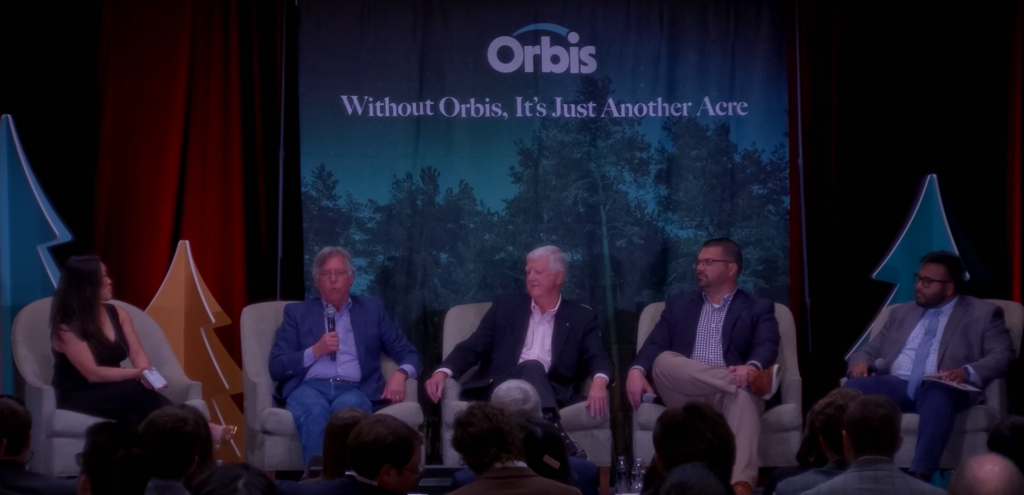

Over the years, the timberland investment community labor market has undergone significant changes in terms of hiring practices, employer offerings, and job seeker expectations. With the growing importance of carbon in the valuation of timberland, employers are seeking individuals with expertise in areas such as biometrics, carbon accounting, and sustainable forestry practices. However, a shortage of workers with these specialized skills has made it challenging for companies to attract the talent they need as candidates redefine what they expect from employers.

Recruiting & Retaining Top Talent
Despite the critical role forestry plays in providing raw materials for various industries such as construction, paper, and packaging, the industry has struggled to recruit new talent and retain current employees. Many companies continue to grapple in their search for qualified employees to fill essential positions, necessitating a more proactive approach to recruitment and training processes.
“We’re seeing companies hire people and then do their own internal training of some kind to get that skill set in place. And I think that will continue,” says Jeffrey Siegrist, Managing Partner of Jeffrey M. Siegrist & Company.
Companies are increasingly recognizing that relying on passive recruitment and waiting for talented candidates to approach them for employment is counterproductive and detrimental to the organization. By utilizing internal training programs, businesses can expand their candidate pool and attract a wider range of potential employees.
“We need to meet these kids and students where they’re at. We’re doing a lot to get in with middle schools and high schools and FFA and the Georgia Ag Teachers Associations and to get in with these kids early through programs that we’ve developed. We need to make forestry appealing to these students, whether that’s videos on TikTok or video games,” says Nick DiLuzio, Vice President of Georgia Forestry Foundation.
While proactive recruitment is an excellent initial measure to secure top-tier candidates, the challenge of retaining and fostering loyalty in employees continues to plague many forestry companies.
“In the past, the industry has provided benefits such as pension, housing, healthcare on site, things like that. And I think revitalizing similar benefits would be a great start,” says Kunal Shanker Sinha, MFR in Forest Business, UGA Warnell School of Forestry and Natural Resources.
“As much as HR tries to convince you, pool tables, pizza parties, fancy offices, are not what keeps employees. We have to prioritize health care, remote work options, PTO, maternity leave, paternity leave, retirement support, diversity. These are things that actually matter to people,” he concludes.
For companies operating in the timberland investment community, attracting and retaining high-caliber talent is essential to remain competitive. To achieve this, companies must demonstrate that their employment opportunities foster a mutually beneficial relationship for both the employer and employee.

Diversity & Inclusion in the Workplace
Nearly all companies today acknowledge the significance of workplace diversity and inclusion, and many take ongoing actions to establish a more diverse and inclusive atmosphere. However, the increasing demand for DEI in the office has led to various demonstrations of “performative activism” as a mere PR tactic. Bob Izlar, Former Founding Director of Harley Langdale, Jr. Center for Forest Business recognizes the harm of companies using social and political causes as a marketing tool without genuinely committing to them.
“It’s definitely important…What I have seen is corporations using that as an end-all and having a DEI program or saying you have one, seems to me more important than what you actually do,” Izlar says.
Taking a performative approach to DEI in the workplace can often backfire and undermine genuine efforts to effect change. Companies should prioritize transparency and authenticity when it comes to their social and political stances and avoid using activism as a branding tool.
“If you’re going to do something like DEI, be thoughtful about it, be intentional about it, be real about it,” says Sinha.

Digital Footprint: Is it Important to Employers?
The timberland investment labor market is not only experiencing continuous changes within the industry but is also confronting urgent changes outside of it. Due to the widespread use of digital technology and the internet in our daily lives, individuals and organizations are leaving a significant amount of data and information behind as they go about their daily activities online. Employers often use social media platforms and online search tools to research job candidates, intending to gain additional insight into their personality, behavior, and qualifications. But with the forestry industry struggling to recruit new workers, the importance of digital footprint is questioned by industry leaders.
“Our greatest need is loggers and truckers and trying to get these kids to enter the workforce out of high school. At this point, we need people. I don’t care if they have a diploma, I don’t care if they have a GED. I just need them to not be drunk, and show up to work every day. So in that case, social media, digital footprint – who cares. As long as they can work and they’re willing to work and they can learn, bring it on,” says DiLuzio.

What Do Employees Expect from Employers Today?
The impact of inflation on employees’ expectations from employers is complex and multifaceted. On one hand, rising prices and costs of living can create financial pressures on employees, leading them to expect higher wages, bonuses, or benefits to help offset the inflationary effects. On the other hand, inflation can create challenges for employers who may face increased costs of production, labor, and other expenses. This can lead employers to be more cautious about wage increases or providing additional benefits.
“The cost of everything has gone up and the wages of yesterday don’t hold up today, so you have to pay your employees well. You have to be transparent about salaries,” Sinha says.
Offering competitive salaries and benefits is a key factor in keeping employees motivated and engaged in their work. When employees feel that they are being compensated fairly, they are more likely to be loyal to the company and stay with them for the long term. In addition to increasing pay, companies may also offer bonuses, stock options, or other financial incentives to keep employees motivated and invested in the success of the company. Companies that recognize this have a greater chance of recruiting and retaining top talent.
“The industry needs to pay more to get the people that it needs. We have a supply shortage in this industry in a lot of categories and a lot of companies won’t accept that they are going to have to pay a lot more money than they expected to. And the winners there will be the ones who step up to the plate and say we’re gonna pay what we need to pay to get the talent that we need,” says Siegrist.

Conclusion
The timberland investment community has encountered numerous changes and obstacles throughout the years, including a labor shortage that has made it challenging for companies to find suitable candidates for crucial roles. To secure and retain exceptional talent, companies must prioritize offering competitive salaries and benefits. Additionally, businesses should commit to a transparent mission that promotes diversity, equity, and inclusion (DEI) to cultivate a work environment that values the contributions of all employees. By emphasizing equitable compensation and creating a culture of inclusivity, companies can establish a positive workplace that attracts and retains top talent. Ultimately, the employers who adapt to the evolving expectations of employees are the ones who will attract high-quality candidates and foster a flourishing timberland investment community.

Let’s Work Together
Orbis helps you make better sense of your assets, and better use of everything involved in managing them. Request more information or book a consultation with us today.